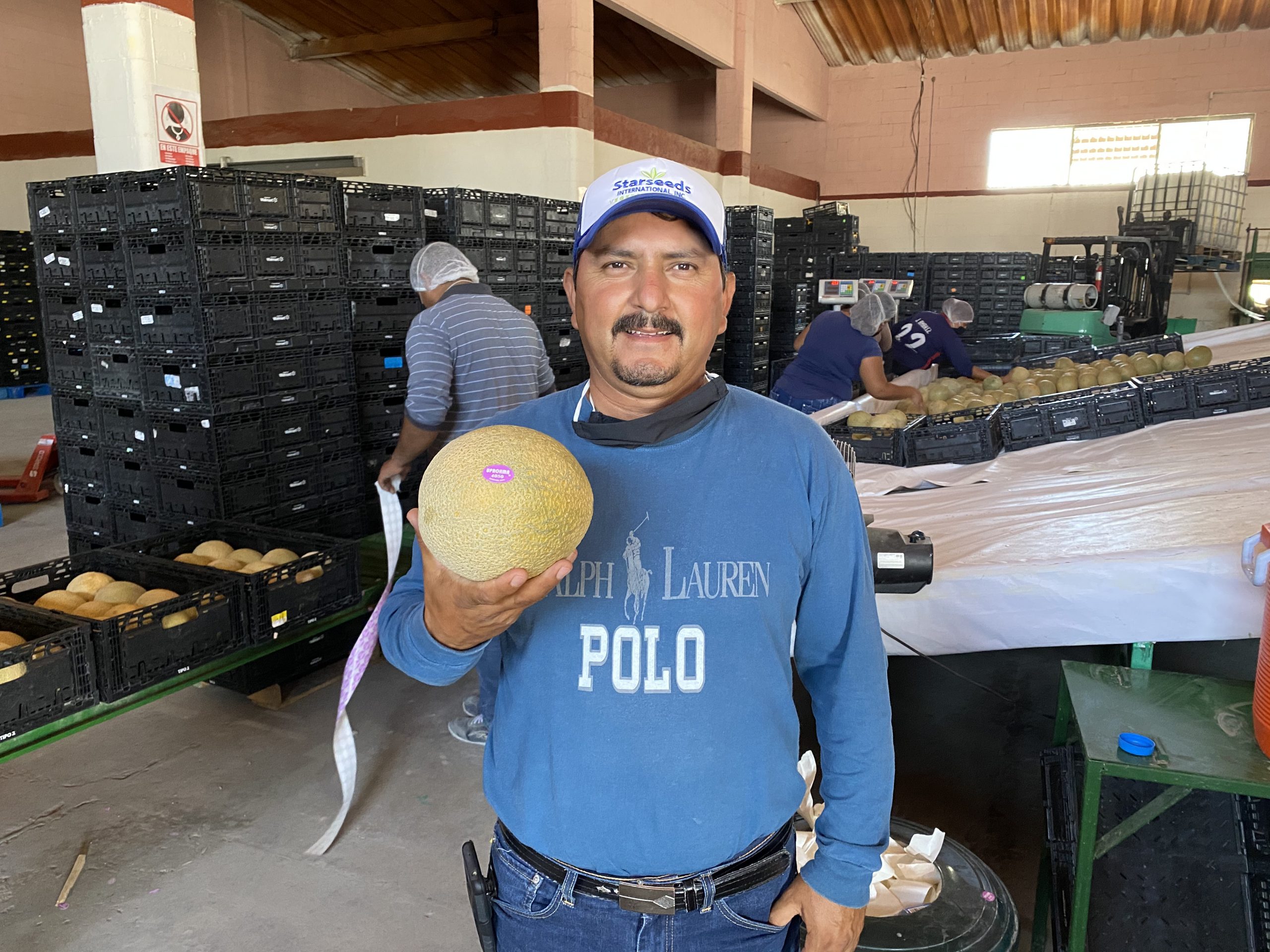Fruit Producers in Mexico Build Resilience to COVID-19 Threats
The COVID-19 pandemic has created new challenges for fruit farmers in Mexico as they try to find markets for their produce amidst shutdowns and shifts in consumer behavior. TechnoServe is helping farmers like Eloy Castañón connect to formal buyers and earn better prices for their produce, ensuring resilience during an uncertain time.

As a child, Eloy Castañón’s days often began before sunrise. Every morning, as the sun started to peek over the horizon, he would trek out to the fields with his father. The family grew melon on their small piece of land in Matamoros, in Mexico’s Coahuila state. In the mornings, Eloy’s father would teach him everything he knew about growing fruit, and in the afternoons, Eloy would attend school.
Eloy is now 41 years old, with a wife and three children, and proud to continue the family tradition of growing melon. But it isn’t as simple anymore as those mornings helping his father in the fields. Despite Eloy’s dedication to the farm, he struggled for many years to earn a decent living. He regularly sold his produce to intermediaries for low prices and was always in debt because of high interest rates.
In 2016, Eloy joined the Inclusive Agriculture Program, a collaboration between TechnoServe and Walmart Foundation Mexico. Through the program, smallholder farmers learn how to increase their farm productivity and crop quality while also developing their business capabilities, improving their incomes by integrating into the value chain of main buyers of fruits and vegetables in Mexico.
We thought that the pandemic was going to affect us a lot. We never imagined that we were going to be the ones to generate work and stability for the community. Thanks to the program, we were able to maintain our sales and market our product without a problem.”
— Eloy Castañón
Before the COVID-19 crisis hit, Eloy and his fellow farmers were transforming the quality of their crops — and their incomes. “Before, we planted like everyone else, and we had no agenda,” he explains. “We were at the service of the coyotes [middlemen]. We worked for them, and the prices did not pay back all the expenses or the investments, so we were always left in debt.” But after applying their new knowledge and skills, farmers in the producer organization were able to sell their fruit at prices more than 75% higher than they had previously.
COVID-19 and New Challenges for Farmers
Then in March of this year came the COVID-19 crisis. Many consumers did not feel safe shopping for food at crowded street markets and instead started buying from more formal channels, such as large grocery stores. To make matters worse, most of the hotel and restaurant sector shut down, forcing farmers to sell their produce at low prices or throw it away entirely.
As farmers like Eloy scrambled to respond, TechnoServe worked closely with them to adapt their business approach. These formal markets could offer a potential lifeline to farmers — if the farmers’ produce could meet the standards of these businesses. So, while unable to meet in person due to travel and health restrictions, the TechnoServe team delivered remote training to over 1,000 farmers to help them meet the stringent requirements of the new formal buyers.
Since March, the team has conducted over 11,000 remote training phone calls and shared 4,000 videos with farmers to help them improve their crops and connect to markets. As a result, the farmers were able to establish new market relationships with five formal buyers and maintain critical income during a time of uncertainty and upheaval.
“We thought that the pandemic was going to affect us a lot,” Eloy admits. “We never imagined that we were going to be the ones to generate work and stability for the community. Thanks to the program, we were able to maintain our sales and market our product without a problem.” Currently, the average price received by farmers in the producer organization is 60% higher than the local market price.
For Eloy and his family, having a reliable income source during the pandemic has been essential for their peace of mind. “I am married and have three children,” Eloy explains. “My income is to support them.”




